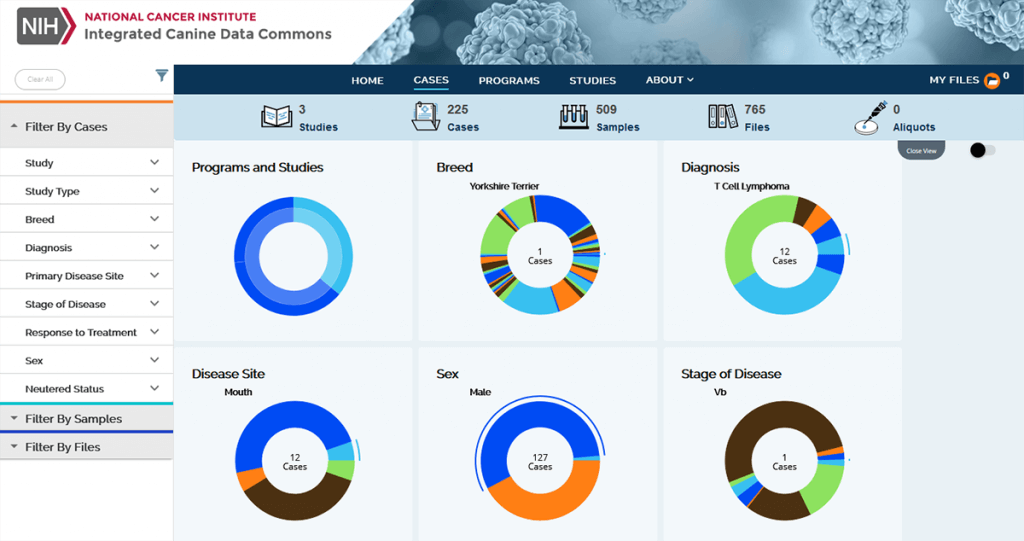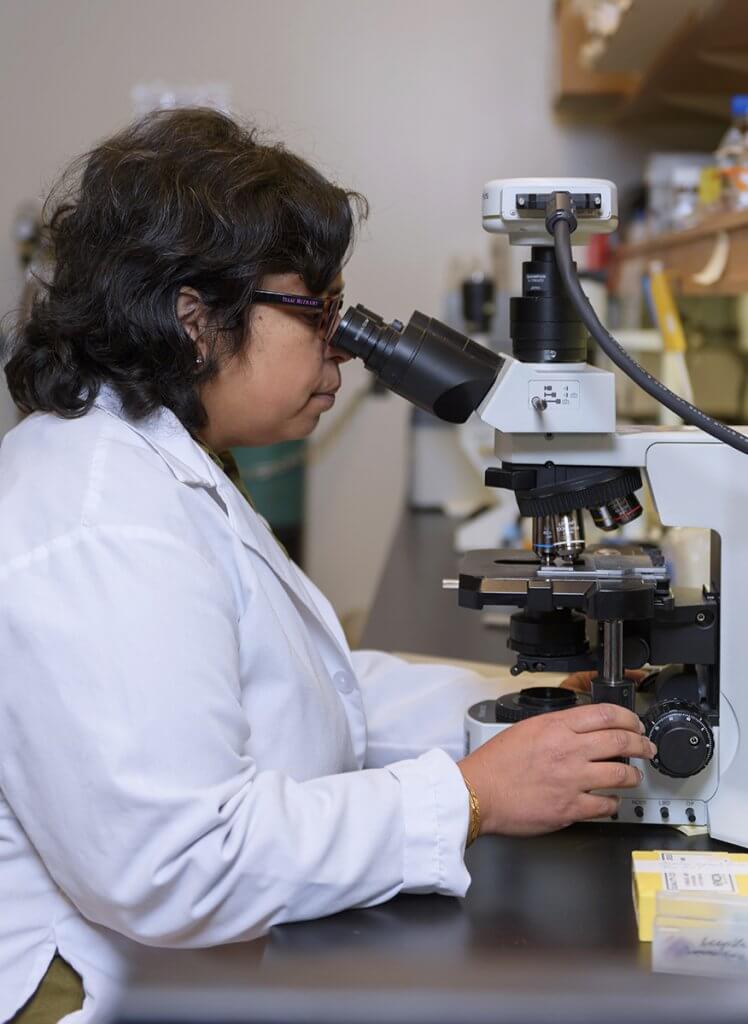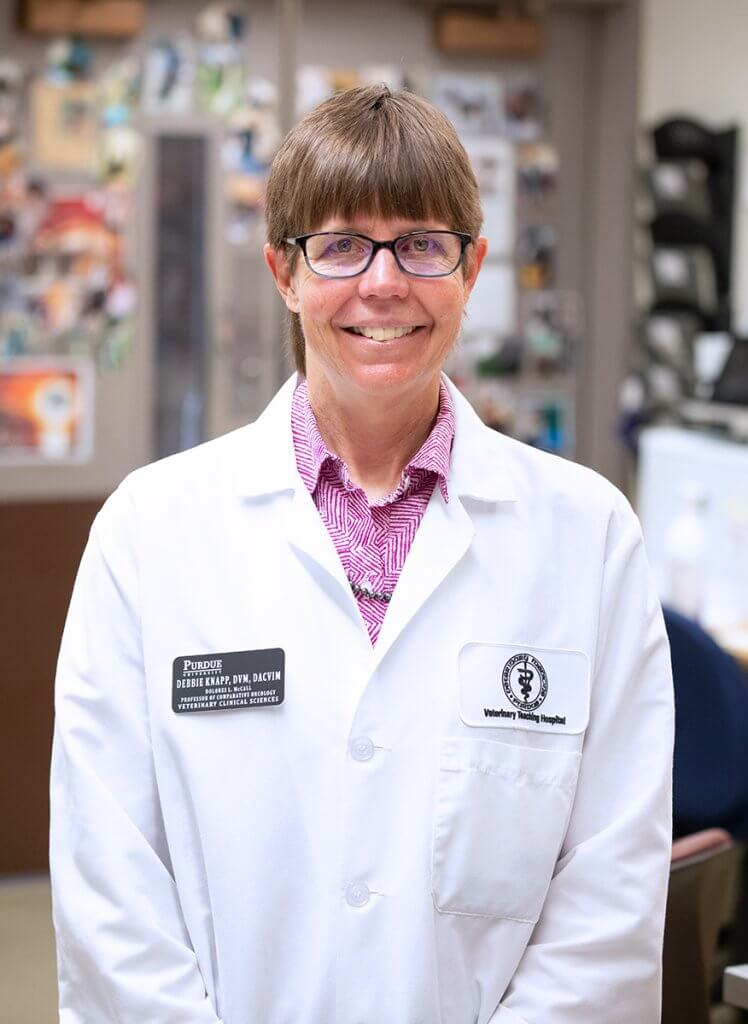The National Cancer Institute has announced the development of the Integrated Canine Data Commons (ICDC), which has significant ties to the Purdue University College of Veterinary Medicine. Developed by the Frederick National Laboratory for Cancer Research, the cloud-based repository of spontaneously arising canine cancer data was created with the goal of advancing human cancer research by enabling comparative analysis of canine cancer. Dr. Deborah Knapp, Distinguished Professor and the Dolores L. McCall Professor of Comparative Oncology in the Department of Veterinary Clinical Sciences, serves on the Steering Committee for the ICDC, as one of the external researchers from institutions of higher education invited to participate.

“Many different types of information on dog tumors, including genomics, pathology, clinical features, and case outcomes can be deposited into the ICDC,” Dr. Knapp explains. “Scientists from all over the world can study the information from dogs and compare it with human cancer patient data from the Cancer Research Data Commons. This is expected to lead to a much better understanding of the similarities and differences between canine and human cancer and better outcomes for cancer patients in both species.” Dr. Knapp adds, “It is an honor to participate with top scientists at the National Cancer Institute who are leading this effort.”


In addition to Dr. Knapp, other scientists from Purdue have been involved, specifically in contributing two of the initial data sets in the ICDC. Dr. Deepika Dhawan, oncology research scientist in the Purdue Comparative Oncology Program, and Dr. Sagar Utturkar, senior bioinformatics scientist in the Bindley Bioscience Center, have been heavily involved in compiling, analyzing, and formatting the Purdue data the team has contributed to the ICDC. Dr. Tim Ratliff, Distinguished Professor of Comparative Pathobiology and the Robert Wallace Miller Director of the Purdue University Center for Cancer Research, was instrumental in connecting the Purdue team to the program.
The ICDC and its website were publicly launched August 26, 2020 in conjunction with National Dog Day. Click here to learn more.
The National Cancer Institute (NCI) is the federal government’s principal agency for cancer research and training. The NCI coordinates the United States National Cancer Program and is part of the National Institutes of Health, which is one of eleven agencies that are part of the U.S. Department of Health and Human Services. The ICDC is part of the Cancer Research Data Commons (CRDC), an initiative from NCI’s Center for Biomedical Informatics and Information Technology (CBIIT). Learn more at cancer.gov.
